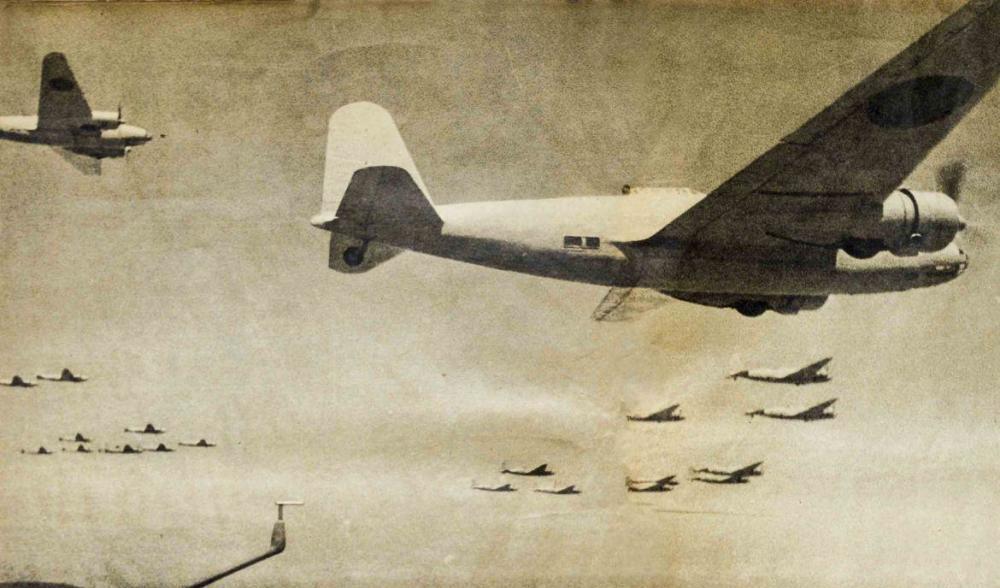On September 18, 1931, the "918 Incident" broke out, and the Japanese army spent nearly 5 months to invade and occupy the three northeastern provinces, and in February 1932, the entire northeast fell. After that, Japan established a puppet regime in northeast China and began a 14-year-long enslavement and colonization of the people of northeast China.
On July 7, 1937, the "July 7 Incident" broke out, marking the beginning of Japan's all-out invasion of China, the starting point of the Chinese nation's all-out war of resistance, and also symbolizing the beginning of the War in the Asian region of World War II. After that, Beiping, Tianjin, and Nankou fell successively. On August 13, 1937, the "Battle of Songhu" broke out, the largest and most tragic battle fought in the entire Sino-Japanese War. Three months later, Shanghai fell and Nanjing was in danger.

At that time, Nanjing was the capital of the Kuomintang government, and after the Japanese occupied Shanghai, they launched an attack on Nanjing. On December 13, 1937, the defense of Nanjing was defeated and the city of Nanjing fell. The Japanese army washed the city of Nanjing in blood, and carried out the famous Nanjing Massacre in History in Nanjing.
After the defeat in the Defense of Nanjing, the Kuomintang government moved to Chongqing and made it the capital of the war. Later, in order to shake the Determination of the Nationalist Government to resist the War, the Japanese Army forced the Nationalist Government to submit and surrender. From 1938 to 1943, the Japanese army dispatched a large number of aircraft to carry out a brutal strategic bombing of Chongqing in five years.
Three of the five years of bombing were the most tragic, namely the 5354 bombing, the 819 bombing, and the 65 tunnel massacre.
5354 Bombing: On May 3 and May 4, 1939, the Japanese army changed to naval bombing. Taking off from Wuhan, it continuously bombed the central area of Chongqing and used a large number of incendiary bombs. Heavy fires burned in the center of Chongqing for two days, and the commercial street was burned to rubble. The bombing totaled 3,991 deaths and 2,323 wounded. 4,889 buildings were destroyed. Nearly 200,000 people are homeless, even foreign churches, Embassies of Britain and France in China, and embassies of Nazi Germany.
819 Bombing: In May 1940, the Japanese base camp launched "Operation 101", which began to be bombed by the army and navy at the same time to the rear of our army. The army used Yuncheng in Shanxi as its base and the navy as its base in Hankou to bomb more than 2,000 Japanese aircraft in Chongqing, of which the bombing on August 19 of the same year was extremely tragic, and more than 2,000 houses in Chongqing were destroyed on the same day. At the end of 1940, the Japanese dropped a total of 4333 tons of bombs on Chongqing.
June 5 Tunnel Massacre: In early 1941, before the Japanese attacked Pearl Harbor in the United States, the Japanese launched Operation 102 in China to concentrate on air strikes on China. From January to August, more than 3,000 aircraft attacked Chongqing, including nighttime airstrikes. Among them, on June 5, the Japanese army bombed Chongqing for 5 hours from late afternoon to midnight. Many refugees fled to a major air-raid shelter in Chongqing, where soldiers were not allowed to enter or leave, and some of the vents in a major air-raid shelter were blown up, resulting in insufficient ventilation in the caverns. Citizens inside the cave crowded into the mouth of the cave due to breathing difficulties, causing mutual trampling and a large number of refugees suffocated, with an estimated thousands of deaths.
According to survivors, there were Japanese traitors who signaled Japanese aircraft, and the Japanese bombed the openings and vents in a targeted manner. The resulting horrific air defense tunnel massacre, known in history as the "Great Tunnel Massacre", is one of the three major tragedies in the history of China's War of Resistance Against Japanese Aggression.
Later, the Pacific War broke out, and the Japanese army drew the main force of the army and naval air force from China. After August 1943, the Japanese army was severely damaged and no longer able to air raid Chongqing, and the chongqing bombing ended. This bombing is of the same nature as the Nanjing Massacre, and the tragic deaths and injuries of China's civilians are extremely sad.
According to incomplete statistics, in the large-scale bombing of Chongqing, the Japanese army air raided Chongqing a total of 218 times, dispatched 9513 aircraft, dropped 21593 bombs, killed 11889 citizens, injured 14100 people, bombed more than 30,000 houses, and bombed more than 30 colleges and middle schools. During the Japanese bombing, the Soviet Aviation Volunteer Corps was stationed in Chongqing in October 1938 to counter the Japanese bombing. More than 20 fighters were used against more than 80 Japanese fighters and bombers, and dozens of enemy aircraft were shot down.
After 1944, our army launched a retaliatory operation, with American bombers flying from Chengdu Xinjin Airport in China bombing the Japanese mainland, and Japan, which was almost destroyed in the air raids, paid a heavy price for the war.
During the Bombing of Chongqing, 15 victims were formally prosecuted by the Japanese government with their wills. After nearly three years of litigation, the Tokyo District Court rejudged the Chongqing Bombing Civil Claims Case, and the first instance resulted in 188 plaintiffs losing the case.